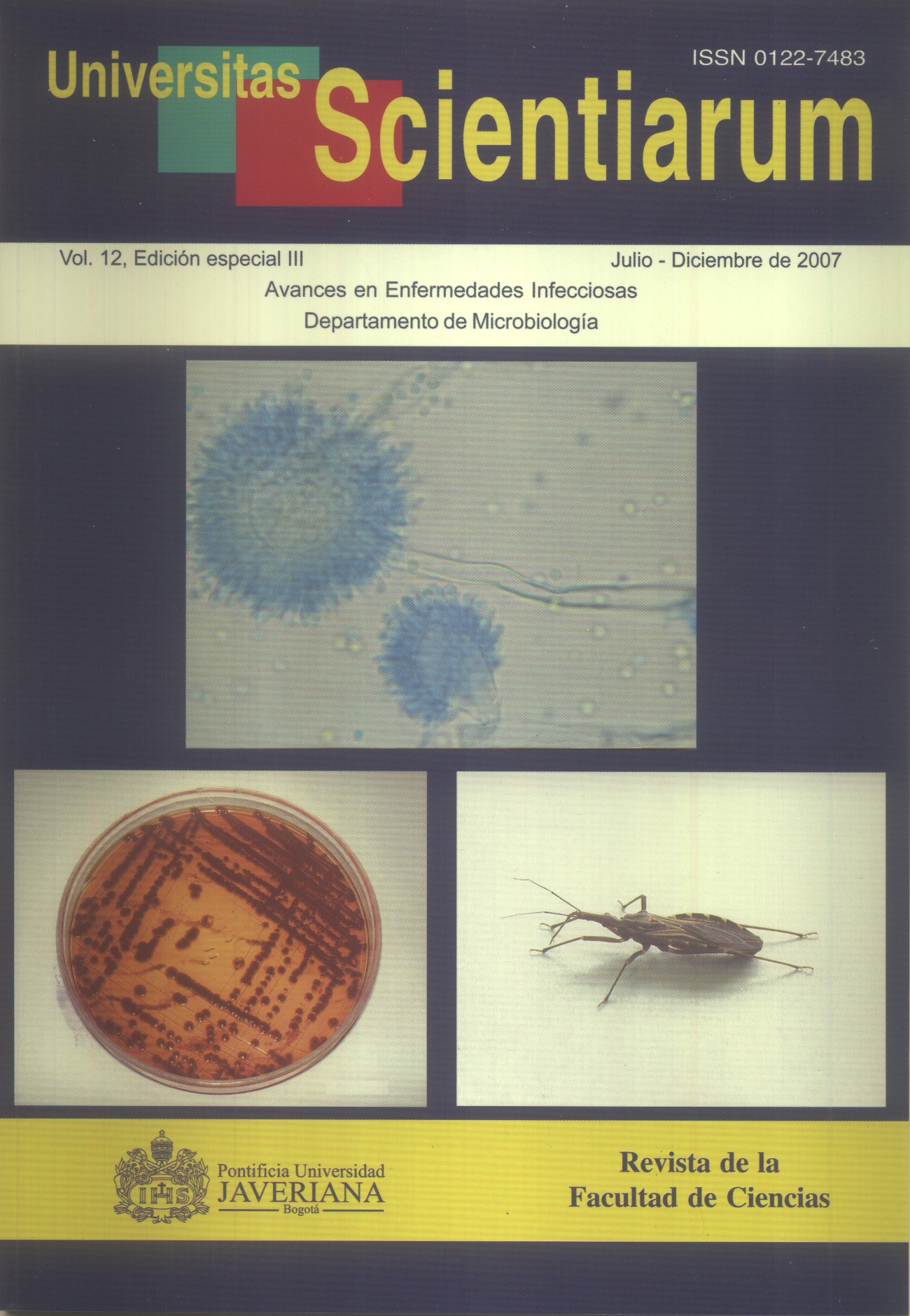Abstract
Los triatominos son insectos de importancia en salud pública ya que transmiten el parásito Trypanosoma cruzi, agente causal de la enfermedad de Chagas. Estos insectos en su flora intestinal contienen bacteriasdel género Rhodococcus, las cuales establecen una relación simbiótica con el triatomino aportándole suplementos nutritivos necesarios para su normal desarrollo y crecimiento. El estudio de estas bacterias tiene gran interés debido tanto a la posibilidad de diseñar estrategias de control paratransgénico, como a las implicaciones de las interacciones que estas bacterias puedan desarrollar con los parásitos dentro del insecto. Dada la dificultad para identificar las bacterias del género Rhodococcus por pruebas tradicionales, en este trabajo se estandarizó una prueba de reacción en cadena de la polimerasa (PCR), seguida de un ensayo de longitud de polimorfismo de fragmentos de restricción para la identificación de Rhodococcus rhodnii aislado de Rhodnius prolixus. Para ello, se amplificó el gen codificante para el ARN 16 S ribosomal bacteriano y los productos obtenidos fueron secuenciados y sometidos a digestión con diversas enzimas de restricción. Los resultados demuestran la aplicabilidad de la prueba de PCR-RFLP para la identificación de R. rhodnii al encontrarse una total correspondencia en el número y tamaño de los fragmentos de restricción obtenidos in vitro e in silico.Univ. Sci. is registered under a Creative Commons Attribution 4.0 International Public License. Thus, this work may be reproduced, distributed, and publicly shared in digital format, as long as the names of the authors and Pontificia Universidad Javeriana are acknowledged. Others are allowed to quote, adapt, transform, auto-archive, republish, and create based on this material, for any purpose (even commercial ones), provided the authorship is duly acknowledged, a link to the original work is provided, and it is specified if changes have been made. Pontificia Universidad Javeriana does not hold the rights of published works and the authors are solely responsible for the contents of their works; they keep the moral, intellectual, privacy, and publicity rights. Approving the intervention of the work (review, copy-editing, translation, layout) and the following outreach, are granted through an use license and not through an assignment of rights. This means the journal and Pontificia Universidad Javeriana cannot be held responsible for any ethical malpractice by the authors. As a consequence of the protection granted by the use license, the journal is not required to publish recantations or modify information already published, unless the errata stems from the editorial management process. Publishing contents in this journal does not generate royalties for contributors.



